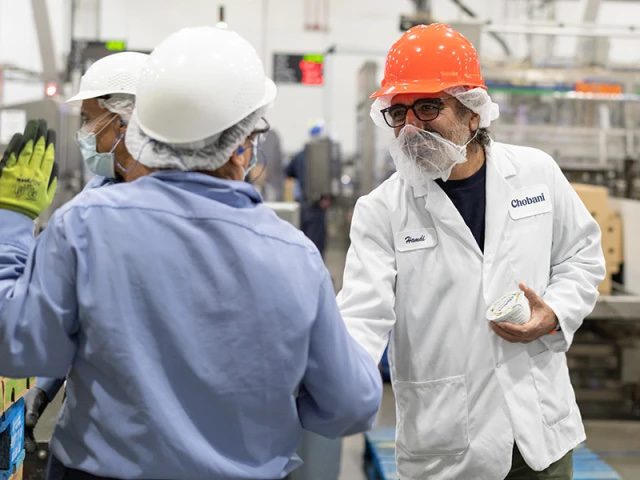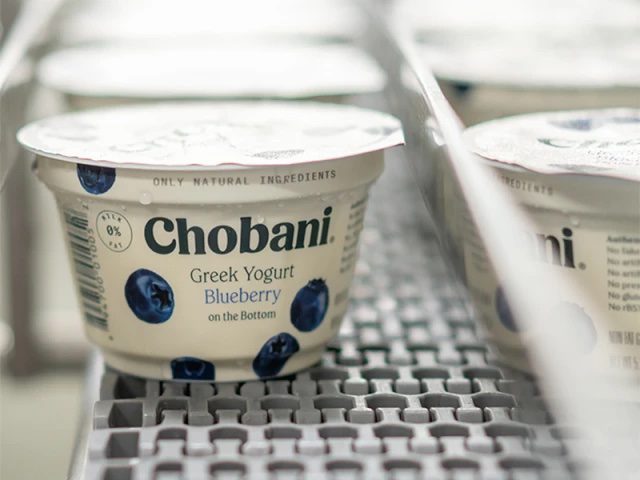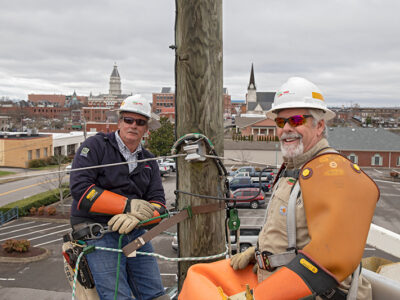Chobani CEO Hamdi Ulukaya believes capitalism can work hand in hand with humanitarianism to fight global food insecurity. He is proposing an end to the standard business playbook and suggests what he calls an “anti-CEO playbook” that puts people ahead of profits. The Norwich, NY-based company founded in 2005, known for its yogurt, has donated millions of dollars toward food insecurity and disaster relief efforts.
“An anti-CEO playbook is about gratitude,” he said in a 2019 TED Talk. “Today’s business book says: business exists to maximize profit for the shareholders. I think that’s the dumbest idea I’ve ever heard in my life.”
Ulukaya wants all food makers to be more aware that many people have a hard time paying for food.

Photo Courtesy Chobani
“And that is the reason I started this whole company, is making yogurt that everybody can have, whether you’re rich or poor, or in New York City or in upstate New York, or wherever you are. Food is a human right. Food is our right to have,” he said in an interview with the Washington Post Live podcast. “And it shouldn’t be connected to, you know, status, where you live, or where your income is.”
Chobani certainly puts its money where its CEO’s mouth is. With sales of more than $2 billion and a lock on 20% of the U.S. yogurt market, the company is a part of the Tent Coalition for Refugees in the U.S., which advocates for the hiring and training refugees across the country.
Chobani is also the force behind the Child Hunger Summit, an annual event that calls for public-private partnerships in the battle against child hunger. The summit also delivers millions of products to food banks across America. In addition to its work to eradicate child hunger, Chobani supports veterans and refugees — and has a core focus on sustainability and nutrition.
Ulukaya is also focused on the company going public for its 2,000 employees, who each own shares in the business.
Going public will also help Chobani’s manufacturing grow, helping underscore its core purpose to create value for all shareholders, including employees and the local community. Currently, Chobani makes its products in small communities in New York, Idaho, and Australia.

Photo Courtesy Chobani
“The capitalistic view is that the core purpose of business is to create value for the shareholders. But if you look at it from another dimension, and this was the prevailing view before the 1970s, the core purpose of business is to create value for all shareholders,” Ulukaya told CNN. “The only way to get people on board with that perspective is to convince them that it’s good for business. When you meaningfully get involved, it becomes an enormous engine for your company.”
For Ulukaya, running a business, at its core, is about prioritizing people over profit. Through Chobani, he hopes to set an example for other food businesses. His approach is clearly working, as the company continues to grow its finances at a rate of nearly 25% annually.
“So, I think investing in our people, making them comfortable, healthy, and look[ing] forward to their future, and they can be with their family, is fundamentally our business number-one rule, is to take care of your own people in every way you can,” he said. “And if you do that, then everything else you do is going to be better after from that moment on.”





